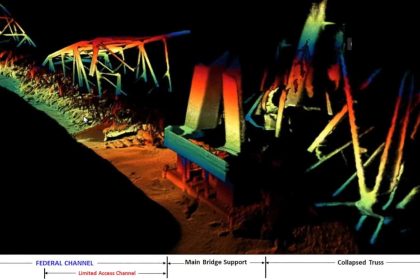US court ruling strikes blow against businesses that dismiss accusations with a sweeping statement that they have ‘no merit’
A few weeks ago, I wrote a story in the FT that described a shareholder lawsuit against a major Wall Street business. The company sent me a statement to include in the article which denied the claims made against it. But curiously, a few hours later after publication, they asked to substitute a new statement.
The revised version was effectively similar to the previous version in predicting eventual vindication. However, it had now excised the phrase that the allegations against it were “without merit”. The updated syntax was no coincidence though it was unlikely to be because the company suddenly wanted to suggest any probity to the shareholder charges.
Rather, the edits were likely to be a direct response to a July ruling in a Massachusetts federal court where a judge allowed a securities fraud lawsuit to go forward against Pegasystems, a publicly traded software company. In federal securities filings in 2022, Pegasystems had insisted that an explosive lawsuit it was then litigating over trade secret theft allegations was “without merit”.
In that case, a Virginia jury eventually ruled against it in 2022 and levied a $2bn civil judgment that sent the company’s shares tumbling. Shareholders then sued, alleging Pegasystems’ previous denials were misleading and caused them trading losses, an argument the Massachusetts judge said was interesting enough to sustain a trial.
Corporate lawyers are now warning companies that their otherwise generic and banal statements must avoid being too sweeping, lest the company’s culpability for potential wrongdoing be either more nuanced or even untrue.
Pegasystems, like many companies, had adopted a corporate code of conduct. Among the planks was a pledge to “[n]ever use illegal or questionable means to acquire a competitor’s trade secrets or other confidential information”.
In fact, Pegasystems had been found in the Virginia lawsuit to have an intensive programme to infiltrate and steal information from arch-rival, Appian. The scheme, which even the chief executive was found to have been in the middle of, included both recruiting a mole to go and work at Appian and later setting up fake companies to pose as Appian customers. Pegasystems has appealed against the ruling and judgment.
Still, the Massachusetts judge overseeing the securities fraud case found Pegasystems’ behaviour antithetical to the code itself and could give rise to a securities fraud claim.
Pegasystems argued to the court that the code was merely “aspirational”, not really a formal set of rules to follow. The court ruled instead that “ . . . the code of conduct statement is not ‘aspirational’ . . . Pega’s most senior executives orchestrated and directed the conspiracy while fostering a corporate culture that promoted and harboured precisely the kind of behaviour that Pega promised investors it would prohibit”.
As for the “without merit” denials, the federal judge noted that the CEO’s involvement in the trade secrets theft should have precluded him using the phrase because he could not offer a credible “denial of the facts underlying Appian’s claims — as opposed to a mere statement that Pega had legal defences against those claims”.
The judge went on to say that when facing allegations of wrongdoing, companies did not face “an obligation to confess to wrongdoing”. But when it offers such challenges, “it must do so with exceptional care, so as not to mislead investors”.
Pegasystems said in a statement that it had “strong grounds” to reverse the $2bn judgment and that it had “substantial” defence against the shareholder lawsuit where it said the judge had to accept the plaintiff’s version of events at this early stage.
Shareholder lawsuits where plaintiffs try to pin a drop in stock price on some particular corporate event, no matter how remote to capital markets, have become a cottage industry. They also remain very difficult to win as, among other things, the plaintiffs must show that the company or executives knew their statements were misleading, and that the stock drop was clearly attributable to the statements.
Company pronouncements have long been beneficiaries of a concept called “puffery”, where words uttered or written could be dismissed as either too vague or farcically silly to be relied upon by shareholders. Denials of wrongdoing have become so formulaic as to be totally vacant in either direction.
“By allowing liability in some circumstances, the court reassures investors that the words have some significance when issuers use them,” said Ann Lipton, a law professor at Tulane University. Shareholders and journalists would both welcome more precise and serious statements to parse.
worldmyfinancial@gmail.com
Source: Financial Times



